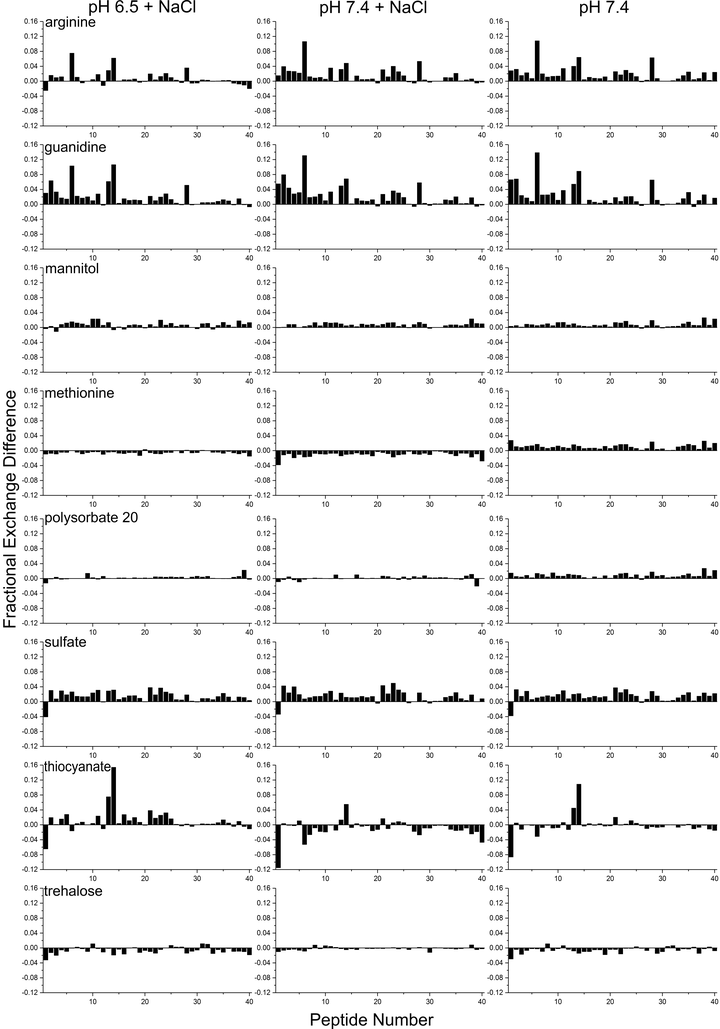Evaluation of Hydrogen Exchange Mass Spectrometry as a Stability-Indicating Method for Formulation Excipient Screening for an IgG4 Monoclonal Antibody

Abstract
Antibodies are molecules that exhibit diverse conformational changes on different timescales, and there is ongoing interest to better understand the relationship between antibody conformational dynamics and storage stability. Physical stability data for an IgG4 monoclonal antibody (mAb-D) were gathered through traditional forced degradation (temperature and stirring stresses) and accelerated stability studies, in the presence of different additives and solution conditions, as measured by differential scanning calorimetry, size exclusion chromatography, and microflow imaging. The results were correlated with hydrogen exchange mass spectrometry (HX-MS) data gathered for mAb-D in the same formulations. Certain parameters of the HX-MS data, including hydrogen exchange in specific peptide segments in the CH2 domain, were found to correlate with stabilization and destabilization of additives on mAb-D during thermal stress. No such correlations between mAb physical stability and HX-MS readouts were observed under agitation stress. These results demonstrate that HX-MS can be set up as a streamlined methodology (using minimal material and focusing on key peptide segments at key time points) to screen excipients for their ability to physically stabilize mAbs. However, useful correlations between HX-MS and either accelerated or real-time stability studies will be dependent on a particular mAb’s degradation pathway(s) and the type of stresses used.